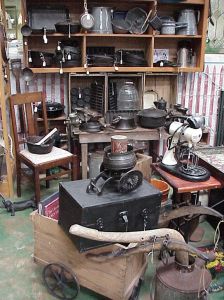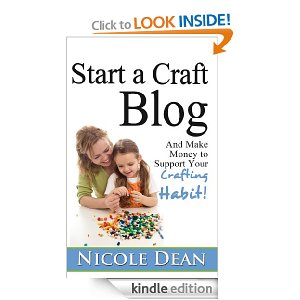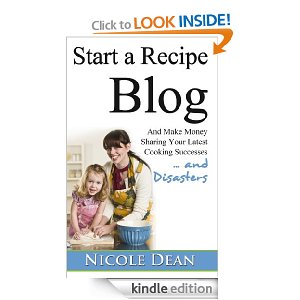Reduce Reuse Recycle – For Your Clutter Free Home and The Planet
As you are organizing your home, you’ve probably noticed you have a lot of stuff. And by stuff I mean junk. We all buy things we don’t need, and we lose interest in gadgets, clothing, and other items we thought we would love when we bought them. We tend to buy too much and we tend to consume too much, which is why we are cluttering up our homes… and our planet. How can our effort to declutter our homes also help our planet? Let’s take a look.

REDUCE: Our first step in reclaiming our house and closets is to reduce our consumption. The most obvious way to declutter is to simply not buy the stuff in the first place. Ask yourself if you need an item before you buy it. Impulse buying is a major contributor to the accumulation of unneeded stuff, the stuff that’s cluttering up your life. Many people put their charge card on ice, literally, to avoid the temptation of an impulsive purchase. If you don’t carry your charge card, the convenience factor is gone.
Some very strong willed people use the “if I still want it tomorrow” approach. It’s exactly like it sounds… if they still want an item the next day, it’s probably not an impulse purchase. Avoid shopping sales just for the sake of shopping. Go shopping only when you need an item, and only purchase that item, even if a fabulous deal is calling your name.
How does reducing your purchases help save the planet? When you buy an unneeded item, it’s not only the item, it’s the fuel and finite resources used to produce it, package it, ship it, and sell it. Our best example is bottled water. If you don’t buy bottled water, there will be less manufactured, which will result in less plastic in our landfills. Even if you recycle the plastic bottles, the fuel used to process the recycled product wouldn’t be necessary if the bottle didn’t exist.

REUSE: The simplest way to reuse an item is to give it away, either to a thrift shop, a friend or a neighbor. Someone else may give your unwanted furniture, clothing, dishes, or appliance a new life. Some larger re-sale shops even pick up your stuff at your door. There are many great opportunities for giving your stuff to someone who needs and wants it. Some very clever people have devised “freecycling” websites for just this purpose. Search the internet in your city or region and you’ll find local groups that are hosting a sort of trade shop. You list the things you have to give away, and someone who is looking for that particular item gets in touch with you to arrange for pickup. If there is a college in your town, there are most likely bulletin boards, either paper or online, filled with “stuff wanted” requests.
Of course, being a little creative and crafty is another way to reuse your stuff. When you devise a new use for your old stuff, you not only keep it out of the landfill, but you don’t have to purchase that new item. Take some time to browse through all the great crafting sites on the internet. You’ll be amazed to see the countless ways that clever people have been turning their trash into treasure. They’re turning t-shirts into pillows, old dressers into bookcases, sheets into quilts, doors into tables, ceiling tiles into bulletin boards, and the list goes on and on.
How does reusing your item help protect the planet? Much in the same way as reducing our consumption does. Aside from cluttering up our homes with more stuff than we need, cluttering up our landfills with unwanted items has terrible consequences to our health and the health of our planet. Finding a new purpose for an old item eliminates the need to produce the new item and the need to dispose of the old.

RECYCLE: When an object is not able to be reused, it should be recycled. Finding a place in your home to create a recycling center can be a challenge, but it beats having your garbage over-flowing or having piles of stuff cluttering your house. If you have a garage, basement, or utility room, look for a good spot to set up a number of bins for your various recyclable items. If you are crammed for space in your home, you will need to get more inventive. Is there a cupboard or even a shelf in your kitchen that you don’t use? Could you fit it with some sort of plastic bin or bins to keep your recyclable items out of view? I never use my dishwasher, so I took the bottom rack out and put in a plastic bin for my recycling spot. Now all you have to do is train the family to put their recycling in the proper place.
Many charitable organizations have collection centers specifically for aluminum. If you gather your aluminum and bring it to their bins, they take it to the recycling center for cash. This is a great way to help your community and get rid of your clutter. A broken or unusable appliance often will have special recycling demands. Most communities offer a pick-up program for appliances, small and large. Some cities will have metal reclaiming centers that actually pay you for your “scrap” appliance and metal.
How does recycling help protect our planet? Our landfills are being filled to capacity with items that do not decompose. If we keep throwing these materials into a landfill, we’ll end up with mountains of trash. Not only will we run out of room, but many of these materials, including appliances, have toxic substances that will leach into the surrounding soil and our water supply. Recycling methods are improving all the time so that plastic, paper, tin, aluminum, and other metals, are being turned into new items at a cleaner and more fuel efficient rate.
Decluttering your home and following the three R’s – Reduce Reuse Recycle – go hand in hand. You want to live in a clean home, don’t you? Then let’s consider our planet our home and keep it decluttered, too!
When I find new ways to clean and declutter my home and life, you’ll be the first to know. Join me right back here to check out ideas you can use to help you get organized, and stay that way.








February 24th, 2009 2:12 pm
you should reuse target, walmart, or etc. bags for trash liners, a bag to carry our stuff, to put wet babditing suits in and more.